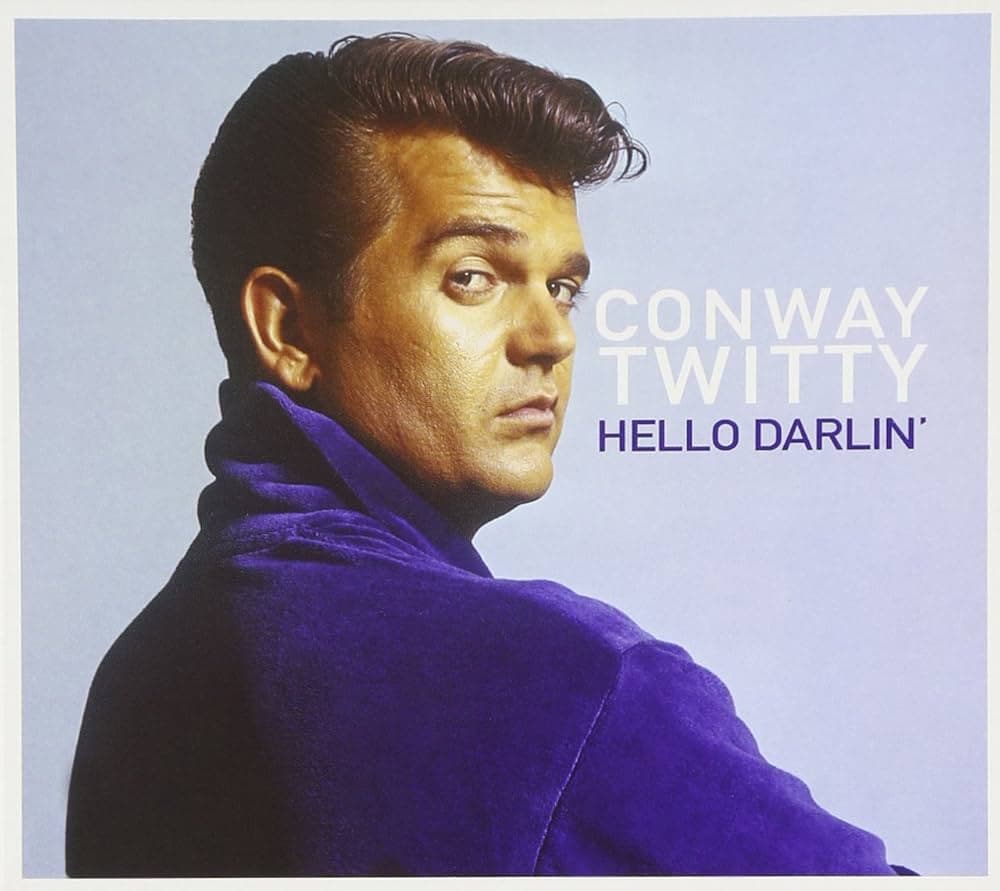
The bittersweet ache of an encounter with a lost love.
For those of a certain vintage, there are songs that don’t just play in the background; they form the very soundtrack of our lives, each note a chapter, each lyric a memory. Conway Twitty’s “Hello Darlin'” is one of those timeless pieces of art, a four-week reign atop the Billboard Hot Country Singles chart in the summer of 1970, and the title track of his first number-one country album. But its chart position, impressive as it was, doesn’t even begin to tell the story of its emotional resonance. This song is a masterclass in subtlety and raw, unvarnished feeling, a delicate dance of spoken word and melody that captures a moment we’ve all lived through.
Picture it: you’re walking down the street, maybe running a few errands, lost in the quiet rhythm of your day, when you look up and there they are. The one who got away. The one you never truly got over. That’s the powerful, poignant scene that Twitty paints with the first two lines, delivered in a gentle, almost conversational tone: “Hello darlin’, nice to see you.” That single, simple phrase, spoken rather than sung, was a stroke of genius, a suggestion from producer Owen Bradley during a recording session in 1969 that would become the song’s unmistakable hook. It draws you in, makes you feel like you’re a silent witness to a deeply personal moment.
The lyrics of “Hello Darlin'” are a study in a man’s fragile attempt at bravado. He starts with a polite, almost detached query about her new life and her happiness, a seemingly selfless gesture. But then, the mask slips. The voice, which had been so steady, cracks with the confession, “I can’t sleep, and I cry all night ’til dawn.” This isn’t just a song about a casual encounter; it’s a profound admission of a love that never died, a wound that never healed. The man, filled with a deep sorrow for his past mistakes, lays bare his enduring pain. He’s pretending to be fine, but the words reveal the truth: he’s lost, he’s hurting, and he’s still deeply in love. The song’s final plea—that if she would just forgive him, he’ll be waiting—is a heartbreaking testament to the hope that lingers long after a relationship has ended.
The beauty of “Hello Darlin'” lies in its authenticity. It’s not a grand, theatrical ballad. It’s a quiet, intimate portrait of regret and unrequited longing. The spoken intro, in particular, became Twitty’s signature, a way to connect with his audience on a deeper, more personal level. He would often open his concerts with it, and it became a beloved standard in country music. The song’s impact even transcended the airwaves and concert halls. In a truly remarkable moment of international diplomacy, a Russian language version of the song, “Privet Radost,” was played by American astronauts to Soviet cosmonauts during the Apollo-Soyuz Test Project in 1975, a simple yet powerful gesture of goodwill. This speaks to the universal nature of the song’s theme: the aching heart and the desire for reconciliation are feelings that cross all borders and languages.
For many of us, this song isn’t just music; it’s a time machine. It takes us back to a moment in our own past, a whispered “hello” to a ghost from another life. It reminds us of a time when songs were more than catchy tunes; they were stories, and the singers were the storytellers, sharing a piece of their soul with every note. In a world that’s always rushing to the next thing, “Hello Darlin'” asks us to pause, to reflect, and to remember that sometimes, the most powerful words are the ones we can’t quite bring ourselves to sing.